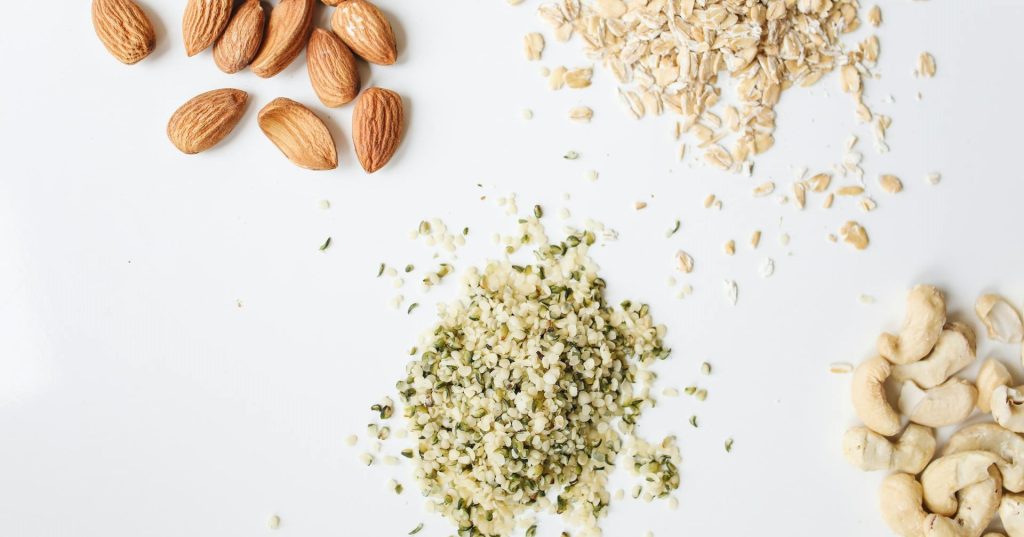Top Superfoods That Will Transform Your Health.
Starting your health journey often begins at the grocery store. Imagine walking through the fresh produce aisle, seeing vibrant colors everywhere. You feel a sense of hope and possibility.
This isn’t just any shopping trip. You’re on a mission to change your diet and your life. Superfoods are key to unlocking a healthier you. They offer nourishment and health benefits.

Key Takeaways
- Quinoa has a lower glycemic index compared to brown rice and whole wheat, assisting in blood sugar control.
- Four-week quinoa diets can reduce post-meal glucose spikes.
- Consuming sardines in olive oil weekly can lower the risk of developing type 2 diabetes by 29%.
- Greek yogurt offers double the protein with fewer carbs and sugar, good for type 2 diabetes management.
- Broccoli is rich in fiber, folate, and potassium, supporting cardiovascular health.
Introduction to Superfoods
Superfoods are amazing foods that are mostly plants, but some fish and dairy are included too. They pack a lot of nutrients and health benefits into small amounts. Let’s explore what makes superfoods so special and why they’re becoming more popular.
What Are Superfoods?
Superfoods are a wide range of foods packed with nutrients. They have lots of antioxidants, vitamins, and minerals. This makes them great for our health and well-being.
Moringa is a standout superfood. It has a lot of vitamin C and potassium. It’s also a good source of plant-based protein, perfect for those who don’t eat meat.
History and Popularity
Superfoods have been part of many diets for a long time. Foods like quinoa and chia seeds were sacred in their cultures. Now, they’re a big part of health trends.
People are now more interested in eating healthy. Foods like kale, blueberries, and acai are getting more attention. They’re seen as key to a balanced diet.
Superfoods are also loved for their versatility. Moringa leaves can be used in teas, cooking, or as a garnish. Seeds can be pressed for oil, good for the skin. This makes them easy to add to many dishes.
Dark Leafy Greens
Dark leafy greens are some of the best foods you can eat. They are full of vitamins and nutrients that help you stay healthy. Knowing about these greens can help you make better food choices.
Health Benefits
Kale, Swiss chard, and spinach are very nutritious. They have vitamins A, C, and K, which are good for your eyes, immune system, and bones. Eating these greens can lower your risk of heart disease and diabetes.
They are also low in calories and high in fiber. This helps you keep a healthy weight and improves your digestion.
Types of Dark Leafy Greens
There are many types of dark leafy greens, each with its own benefits. Here are some examples:
- Beet Greens: They have only 22 calories per 100 grams and are very hydrating. They also have lots of Vitamin A and C, which are important for your health.
- Spinach: It’s great for boosting iron levels. It also has folate and antioxidants.
- Kale: It’s full of vitamins A, C, and K, and has polyphenols. These help with weight management and metabolism.
- Swiss Chard: It has many vitamins and minerals, including magnesium and potassium. These are good for muscles and nerves.
- Radish Leaves: They are rich in vitamin C, calcium, and protein. They’re a great addition to any diet.
- Turnip Greens: They have vitamins A, K, B6, and C, and minerals like copper, calcium, and iron.
- Bathua (Lamb’s Quarters): It’s a tasty leafy green eaten in winter. It’s full of nutrients and is often used in Indian cooking.
How to Incorporate Them Into Meals
Adding dark leafy greens to your meals is easy and tasty. Here are some ideas:
- Salads: Mix beet greens or spinach with berries and nuts for a healthy meal.
- Smoothies: Blend kale or Swiss chard with bananas and berries for a refreshing smoothie.
- Side Dishes: Sauté Swiss chard or beet greens with garlic and olive oil for a nutritious side.
- Stir-Fries: Add spinach or turnip greens to stir-fries for extra vitamins and minerals.
By adding these superfoods to your diet, you can improve your health and live longer. There are many ways to enjoy dark leafy greens, making them a great addition to your meals.
Berries
Berries are a favorite for their bright colors and tasty flavors. They are full of vitamins, minerals, and antioxidants. Adding them to your meals can boost your health.
Nutritional Value
Strawberries, blueberries, and raspberries are packed with nutrients. Blueberries, for instance, have polyphenols that help your heart. They prevent blood clots and reduce inflammation.
Blackberries are full of fiber and vitamin C. They can lower your risk of heart disease. Strawberries, with their vitamin C and anthocyanins, may help lower blood pressure and support heart health.
Acai berries have polyphenols that fight oxidative damage. This can help prevent age-related diseases like vascular dementia. Goji berries can improve your brain function and memory.
Antioxidant Properties
Berries are full of antioxidants that fight free radicals. Free radicals can cause illness and aging. Blueberries can slow down memory loss and reduce dementia risk.
Cranberries can improve memory and brain function in older adults. Blueberry juice may also help with depression and anxiety. Looking at strawberry plants can even lower stress and negative feelings.
Eating different berries can reduce inflammation and cancer risk. They are also good for your heart. With their low calories and sugar, berries are a great choice for a healthy diet.
Organic Superfoods powder

Many people are curious about nature’s most powerful superfood. Organic superfoods powder is a popular choice to boost diets. It’s packed with nutrients from natural foods, making it easy to add to meals.
Some hot chocolate blends use organic superfoods powder. They include organic cacao, coconut milk, and more. These ingredients add flavor and health benefits. Each serving has no added sugar and lasts for 25 servings.
Organic cacao in these blends offers zinc and flavonols. These are good for the immune system and healing. Organic turmeric adds antioxidants and anti-inflammatory properties. It helps with inflammation and supports heart and joint health.
Collagen in the blend supports gut, heart, bone, and skin health. Adaptogens like ashwagandha and turmeric help manage stress and inflammation. They also support hormone balance and brain health.
This hot chocolate is gluten-free and free from harmful substances. It’s tested for quality and safety. This makes it a safe choice for those with dietary restrictions.
For plant-based protein, try Vegan Ayurvedic Protein Powder: Chocolate by Elements Truffles. It has 18g of protein per serving. It’s made from organic yellow peas and includes herbs and spices for immunity and performance.
Elements Truffles focuses on organic, dairy-free, and gluten-free ingredients. Their products are free from artificial additives. This shows their commitment to quality and health.
- Ingredients: Pea protein isolate, cacao, oat milk powder, vanilla bean powder, ashwagandha root powder, monk fruit extract, Brahmi powder
- Protein per Serving: 18g
- Benefits: Supports stress management, boosts immune system, enhances brain function, improves post-workout recovery
- Dietary Features: Organic, dairy-free, refined sugar-free, gluten-free, soy-free, GMO-free, ethically sourced
Using organic superfoods powder can greatly improve your health. Whether it’s a hot chocolate blend or a plant-based protein powder, these products are easy to use. They help you add superfoods to your diet.
Eggs
Eggs are a superfood powerhouse, packed with nutrition in a small package. They offer many benefits, like high protein and good heart health.
Protein Content
Eggs are known for their high-quality protein. Each egg has about six grams of protein. This makes them a great, affordable source of amino acids.
Eggs also have a high thermic effect of food (TEF). This means they help burn more calories during digestion and metabolism. This is more than fats or carbs. Eggs are perfect for boosting protein without the cost of meat or fish.
Impact on Heart Health
The debate on eggs and heart health has been ongoing. But recent studies show eggs can be good for your heart. They raise HDL cholesterol, the “good” kind.
It’s key to note that eggs are okay when consumed in moderation. They are part of a healthy diet that can also address vitamin D and iron deficiencies. These are important for overall health.
| Benefits of Eggs | Details |
|---|---|
| Calories | One large egg contains approximately 70 calories |
| Caloric Control | Eating eggs for breakfast can help you consume 400 fewer calories over the next 24 hours |
| B Vitamins | High in B vitamins, particularly B12, which are involved in energy metabolism |
As dietary guidelines change, eggs and whole foods are back in favor. They are key to a balanced diet. A moderate amount of eggs can greatly improve your health, making them a must-have in your diet.
Legumes
Legumes, like beans, lentils, and peas, are packed with superfood benefits. They are rich in plant-based protein and fiber. They also have lots of vitamins and minerals.
Legumes are full of essential nutrients. Eating them can help manage cholesterol and keep your heart healthy. They also help control blood sugar levels because of their low glycemic index.

Let’s take a closer look at some common legumes and their nutritional profiles:
| Legume | Protein (per 100g) | Fiber (per 100g) | Key Nutrients |
|---|---|---|---|
| Lentils | 9g | 8g | Iron, Folate, Magnesium |
| Chickpeas | 8.9g | 7.6g | Vitamin B6, Iron, Magnesium |
| Black Beans | 8.9g | 8.7g | Folate, Potassium, Iron |
Legumes are also easy to use in cooking. You can add them to salads, soups, and stews. They’re also great for making dips like hummus. Eating legumes regularly can be a tasty way to boost your health.
Nuts and Seeds
Adding nuts and seeds to your meals is a smart move for your health. They are full of healthy fats, proteins, and fiber. This mix helps keep you feeling good.
Types of Nuts and Seeds
There are many nuts and seeds you can add to your day. Each one brings its own set of good stuff:
- Almonds: They’re packed with protein, fiber, and healthy fats. Almonds are great for your heart.
- Chia Seeds: Chia seeds are full of omega-3s, fiber, and antioxidants. They help your digestion and fight inflammation.
- Flax Seeds: Flax seeds are rich in lignans, fiber, and omega-3s. They help balance your hormones and keep your heart healthy.
- Chestnuts: Chestnuts are low in calories and fat. They’re full of fiber, helping you manage your weight and heart health.
Health Benefits
Nuts and seeds are packed with health perks. Adding them to your diet can make a big difference:
- Cardiovascular Health: Many nuts and seeds can lower your heart disease risk. They do this by reducing cholesterol and inflammation.
- Weight Management: Chestnuts, for example, are high in fiber. This fiber helps you feel full and can aid in weight control.
- Nutrient-Rich: Chestnuts are also full of vitamins and minerals. These support your overall health.
- Antioxidant Properties: Chestnuts contain antioxidants like gallic acid. These antioxidants fight off free radicals and reduce inflammation.
- Diabetes Management: Nuts like chestnuts have a low glycemic index. This makes them good for controlling blood sugar levels.
- Mental Health: A study showed eating 30g of nuts daily can lower depression risk by 17%.
| Nutrient | Almonds (per 1 oz) | Chestnuts (per 1 oz) |
|---|---|---|
| Calories | 170 | 70 |
| Fat | 15 g | 0.3 g |
| Dietary Fiber | 3.5 g | 3 g |
| Protein | 6 g | 1 g |
| Vitamin C | 0% | 21% |
By adding different nuts and seeds to your diet, you can enjoy their many health benefits. Whether it’s almonds, chia seeds, flax seeds, or chestnuts, these superfoods are key to a balanced diet.
Kefir and Yogurt
Kefir and yogurt are superfoods packed with probiotic benefits. They are full of good bacteria and yeast that boost your health. You can choose from dairy or non-dairy options, both good for your gut and immune system.

Dairy and Non-Dairy Options
Dairy kefir and yogurt are rich in probiotics. But, if you can’t handle lactose or follow a vegan diet, there are non-dairy versions. Almond milk kefir and coconut yogurt offer similar health perks without lactose.
- Dairy Kefir: Made from cow or goat milk, it’s packed with probiotics.
- Almond Milk Kefir: A non-dairy option that’s easy on the stomach and has probiotic benefits.
- Cow’s Milk Yogurt: Known for its creamy texture and probiotics.
- Coconut Yogurt: A plant-based choice with probiotics and a tasty flavor.
Probiotic Benefits
Kefir and yogurt have many probiotic benefits. Eating them regularly keeps your gut flora balanced. This is key since 70% of your immune cells are in your gut. The probiotics in these foods, like Lactobacillus and Bifidobacterium, aid digestion, boost immunity, and may help your mental health.
Here’s a comparative overview of key probiotic benefits:
| Benefit | Kefir | Yogurt |
|---|---|---|
| Digestive Health | Improves digestion with diverse bacteria and yeast | Enhances digestion with fewer strains |
| Immune Support | Boosts immunity by balancing gut microbiota | Supports immune function with healthy bacteria |
| Bone Health | Rich in calcium and vitamin D | High in calcium, promoting strong bones |
Adding kefir and yogurt to your diet can improve your gut health and overall well-being.
Garlic
Garlic has been a key ingredient in kitchens for centuries. It’s not just for flavor but also for its health benefits. Eating garlic regularly can lower blood pressure and cholesterol, helping your heart stay healthy.
Garlic is also known for fighting off viruses and bacteria. It contains allicin, a compound that boosts the immune system. This makes garlic great for keeping illnesses at bay.
Garlic does more than just help the heart. It’s full of prebiotic fiber that supports gut health. This is especially true for fermented honey garlic, a trend on TikTok. Mixing garlic with honey boosts the immune system and improves overall health.
The garlic-honey remedy is made by fermenting garlic in honey for weeks. This process makes the nutrients easier to absorb. Some might find the taste strange, but the health benefits are worth it.
To show garlic’s benefits, let’s compare it with other antiparasitic foods:
| Food | Main Compound | Health Benefits |
|---|---|---|
| Garlic | Allicin | Antiparasitic, antiviral, antibacterial, anti-inflammatory |
| Pumpkin Seeds | Cucurbitacin | Helps rid the body of nematodes, tapeworms |
| Coconut | Lauric Acid | Antiparasitic, antiviral, anti-inflammatory, antifungal |
| Onions | Sulfuric Compounds | Antiparasitic properties |
| Barberry | Berberine | Broad antimicrobial effects, balances blood sugar |
Adding garlic to your diet is easy and beneficial. You can use fresh cloves, supplements, or fermented honey garlic. Your body will appreciate it.
Olive Oil
Olive oil is a timeless ingredient loved for its health benefits and cooking uses. It’s a key part of the Mediterranean diet. It helps the heart and brain, making it great for your health and cooking.
Healthy Fats
Olive oil is full of healthy fats. These fats are good for the heart and reduce inflammation. They also support brain health, helping with thinking and protecting against diseases.
It’s also packed with polyphenols, powerful antioxidants. These fight inflammation, making olive oil a superfood.
Cooking Uses
Olive oil is versatile in cooking. It’s a must in Italian cuisine, adding flavor to dishes. It’s great for sautéing, dressing salads, or baking.
High-quality extra virgin olive oil is perfect for finishing dishes. It adds a rich taste. Its high smoke point is also good for frying and roasting.
| Type | Best Uses | Health Benefits |
|---|---|---|
| Extra Virgin Olive Oil | Dressing, Finishing | Rich in monounsaturated fats and polyphenols |
| Virgin Olive Oil | Sautéing, Light Frying | Contains healthy fats, mild polyphenol content |
| Pure Olive Oil | High-heat Cooking, Frying | Lower in polyphenols, suitable for high-heat cooking |
Adding olive oil to your diet brings health benefits and tasty meals. It enhances flavors in salads and makes roasts crispy. Olive oil is key to great cooking and health.
Ginger and Its Benefits
Ginger is known for its unique flavor and many uses in cooking. It has been valued for centuries for its health benefits. This makes ginger a true superfood.
Ginger is great for easing nausea. It works well for motion sickness, morning sickness in pregnancy, and after surgery. You can add it to teas, smoothies, and soups to help with nausea and improve digestion.
Ginger also fights inflammation. This is good for people with arthritis and other inflammatory diseases. Eating ginger regularly can reduce muscle pain and soreness. It’s perfect for after working out or being active.
Ginger is also good for your digestive health. It’s in blends like “My Happy Gut” and “Gut Hot Chocolate.” These blends help with digestion and ease stomach discomfort. Ginger’s anti-inflammatory properties also calm the digestive system, helping with bloating and indigestion.
Ginger does more than just soothe the stomach and fight inflammation. It’s in “All Day Energy” blend to detoxify and give energy. It supports liver health and helps your body absorb nutrients better. This blend gives you energy without the caffeine jitters.
For a visual look at ginger’s benefits in wellness blends, see the table below:
| Wellness Blend | Key Ingredients | Benefits |
|---|---|---|
| My Happy Gut | Ginger | Improves digestion, relieves bloating |
| Gut Hot Chocolate | Ginger, Indonesian cacao | Supports gut health, anti-inflammatory effects |
| All Day Energy | Ginger | Sustained energy, detoxification |
Adding ginger to your diet can greatly improve your health. Its anti-inflammatory and digestive benefits make it a standout superfood. Enjoy its many uses and benefits.
Conclusion
Adding superfoods to your diet can greatly improve your health. Foods like dark leafy greens, berries, and garlic are packed with nutrients. They help reduce chronic disease risk and boost gut health.
Superfoods like Ora King salmon are rich in protein and omega-3s. The American Heart Association suggests eating fatty fish like salmon twice a week. Ora King salmon is not only healthy but also tastes great.
Beans are also superfoods that benefit gut health and weight management. They can even help your brain function better. Eating beans regularly can lead to weight loss and lower cognitive decline risk.
Choosing a diet full of superfoods is a smart move for better health. It’s a way to boost your wellness, fight off diseases, and get more nutrients. Start adding these superfoods to your meals for a healthier life.
FAQ
What are superfoods?
Superfoods are foods packed with nutrients. They help improve health, boost energy, and prevent diseases. Most are plant-based, but some fish and dairy are included too.
Which foods are considered superfoods?
Superfoods include dark greens like spinach and kale, and berries like strawberries and blueberries. Legumes, nuts, seeds, eggs, garlic, olive oil, and organic superfoods powder are also superfoods. They are rich in nutrients and good for your health.
What is the #1 healthiest food?
It’s hard to pick just one, but dark leafy greens are often at the top. They’re full of vitamins A, C, and K. They also help prevent chronic illnesses.
How do dark leafy greens benefit your health?
Dark greens like spinach, kale, and Swiss chard are full of vitamins. They help lower the risk of heart disease and type 2 diabetes. You can add them to salads, smoothies, and more to boost your diet.
What are the nutritional benefits of berries?
Berries like strawberries, blueberries, and raspberries are rich in fiber and vitamin C. They also have antioxidants that fight inflammation and prevent diseases. Enjoy them in cereals, salads, or as snacks.
What makes organic superfoods powder a good addition to a diet?
Organic superfoods powder is a concentrated mix of nutrients from green tea, berries, and mushrooms. It’s easy to consume and boosts your nutrient intake.
How do eggs contribute to heart health?
Eggs are a nutritious food with high-quality protein and amino acids. They help increase good HDL cholesterol, which is good for the heart.
What are the benefits of consuming legumes?
Legumes like beans, lentils, and peas are great plant-based protein sources. They’re also high in fiber and nutrients. They help manage cholesterol and blood sugar, making them a healthy diet addition.
What types of nuts and seeds should you include in your diet?
Nuts and seeds like almonds, chia seeds, and flax seeds are full of healthy fats and proteins. They help prevent heart disease and support weight management. Adding different types to your diet boosts your nutrient intake.
How do kefir and yogurt benefit your health?
Kefir and yogurt offer probiotics, which are good for digestion and overall health. Non-dairy options like coconut yogurt or almond milk kefir are great for those with lactose intolerance. They ensure you get probiotic benefits without dairy.
What are the health benefits of garlic?
Garlic is known for its heart health benefits, including lowering blood pressure and cholesterol. It also has antibacterial and anti-inflammatory properties, making it a valuable diet addition.
How can olive oil improve your health?
Olive oil is a key part of healthy diets, providing healthy fats that improve heart health. It’s a great choice for cooking and a healthier alternative to other fats.
What are the benefits of incorporating ginger into your diet?
Ginger helps with nausea, muscle pain, and inflammation. It can manage arthritis and other inflammatory conditions. Adding ginger to your meals is a great way to boost your health.
Source Links
- https://www.yahoo.com/lifestyle/type-2-diabetes-superfoods-steady-144554305.html
- https://www.thehealthsite.com/diseases-conditions/clogged-arteries-management-diet-tips-5-red-coloured-winter-superfoods-to-flush-out-bad-ldl-naturally-1164593/
- https://www.getsurrey.co.uk/news/health/experts-praise-superfood-could-protect-30624788
- https://psychtimes.com/health/why-moringa-products-are-the-secret-to-better-nutrition/
- https://www.elementstruffles.com/?srsltid=AfmBOorOT4rLqO6Z8O3Nj3qTw58Yd09KN8DAV_qRTT4AppQ-qUXsDp1u
- https://circledna.com/blog/south-beach-diet-all-you-need-to-know/?srsltid=AfmBOooBqYQNJCwcxdcUg2O5ZALBQ8J1xBgtZT4Yc18hOkBxEnquxtXI
- https://epicureanearth.com/all-about-the-beet-greens/
- https://www.timesnownews.com/lifestyle/food/news/dont-throw-your-vegetable-leaves-8-lesser-known-indian-greens-that-are-healthy-ingredients-article-115733508
- https://www.getsurrey.co.uk/news/health/im-doctor-top-tip-weight-30619999
- https://www.medicalnewstoday.com/articles/health-benefits-of-berries
- https://www.getsurrey.co.uk/news/health/doctor-says-three-berries-excellent-30627185
- https://www.lutheranhospital.com/health-library/343
- https://justingredients.us/products/superfood-hot-chocolate?srsltid=AfmBOorXamN1QneHuI5Ln0A7uUmKmSI0inu952pGPgDrk_4FOtEP4D6g
- https://www.elementstruffles.com/products/plant-based-ayurvedic-protein-powder-chocolate?srsltid=AfmBOoq9t4i3bcgbC28-iC2G1kr230P9ypvDSIPbl6vb70w0NeWTN9ZF
- https://www.sciencealert.com/fda-rewrites-rules-of-healthy-foods-for-first-time-in-30-years
- https://brizzwizz.com/shocking-benefits-of-eating-eggs-every-day-for-women/
- https://www.india.com/health/high-uric-acid-diet-6-vegetarian-superfoods-to-lower-risk-of-gout-attack-7480442/
- https://www.360italymarket.com/en/blog/italian-superfoods-b61.html?srsltid=AfmBOoq8QDHqklxFApx4KdYXFq97hdtf7if6kT1IvEDniwc-bmExYFr6
- https://timesofindia.indiatimes.com/life-style/health-fitness/weight-loss/lose-weight-with-chestnuts-the-superfood-that-targets-belly-fat-and-lowers-cholesterol/articleshow/116477263.cms
- https://www.getsurrey.co.uk/news/health/handful-one-food-every-day-30627470
- https://primalharvest.com/products/primal-probiotics?srsltid=AfmBOorG08sXYVNk19E7woGi-yCviquBlcXG4ZgUe3gnZ_i0KxLrmMTx
- https://clearwatercultures.com/collections/all
- https://drwillcole.com/food/foods-that-kill-parasites
- https://www.getsurrey.co.uk/news/health/health-experts-approve-tiktoks-fermented-30625456
- https://www.360italymarket.com/en/blog/italian-superfoods-b61.html?srsltid=AfmBOop7xhBc7apoaHT2HdHKychwW8mIkWX7MEDOqfhul2rWWhCFFHf9
- https://www.mindbodygreen.com/articles/how-to-make-daniel-amens-favorite-salad-for-brain-health-healthy-recipes?srsltid=AfmBOopnwPLhSUQsqzMpsC1ufIwjaaiDwtkfb4Hg7CEzDfuIwtENi01j
- https://cosmix.in/blogs/blog/know-your-superfoods?srsltid=AfmBOoqoraOdfOLtdYC5mnrHhlqKq7uqPK6Rw-euHdJwNicJODHdbfTf
- https://www.drfuhrman.com/blog/287/drinks?srsltid=AfmBOoryaH3iudXcNEM6pKTH1jnf3lVaGhHa5PC673s4n5TwAUo0lAf4
- https://www.mondomulia.com/2024/12/19/superfoods-boost-mental-health/
- https://globalseafoods.com/blogs/recipes/ora-king-salmon-a-protein-packed-superfood-for-a-healthier-you?srsltid=AfmBOoqdoaW7ERP9gqv4UC1D4BLfQO9iga6hwu-3KYvDO_sXyaiLP1RQ
- https://elearncollege.com/nutrition-and-diet/beans-the-nutritional-powerhouse/
- https://www.ganeshdiagnostic.com/blog/health-benefits-of-chironji



